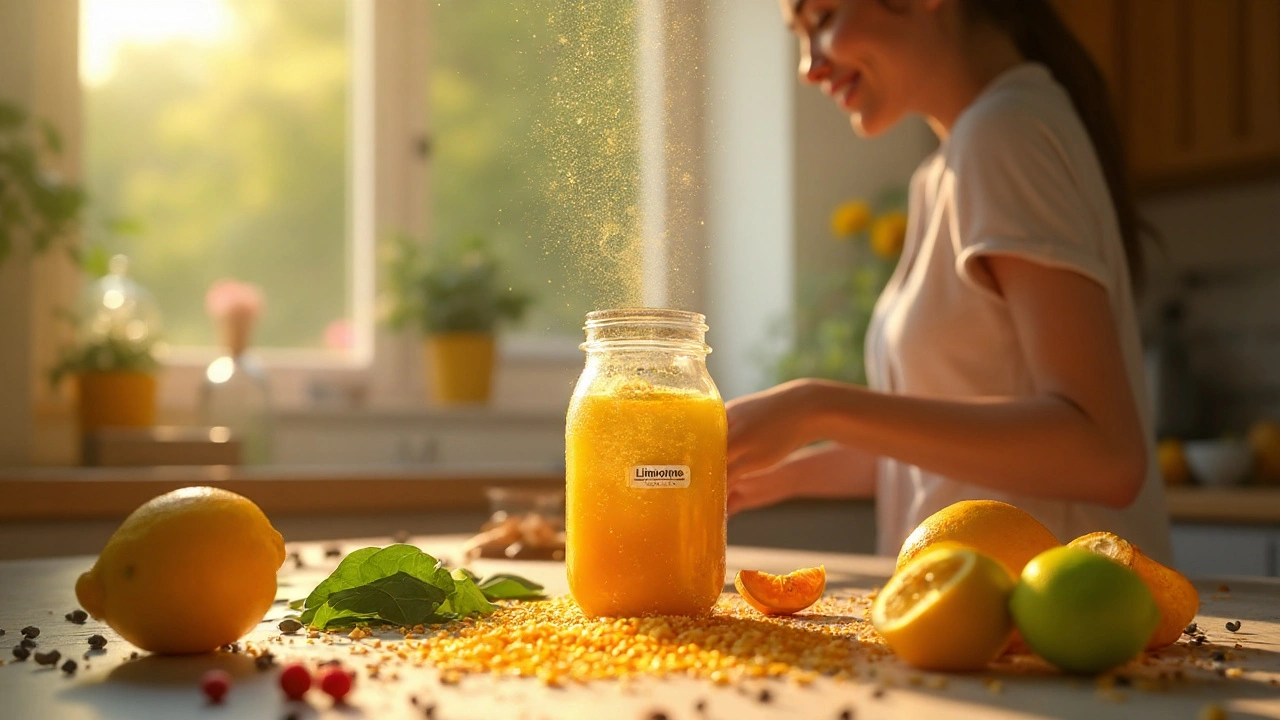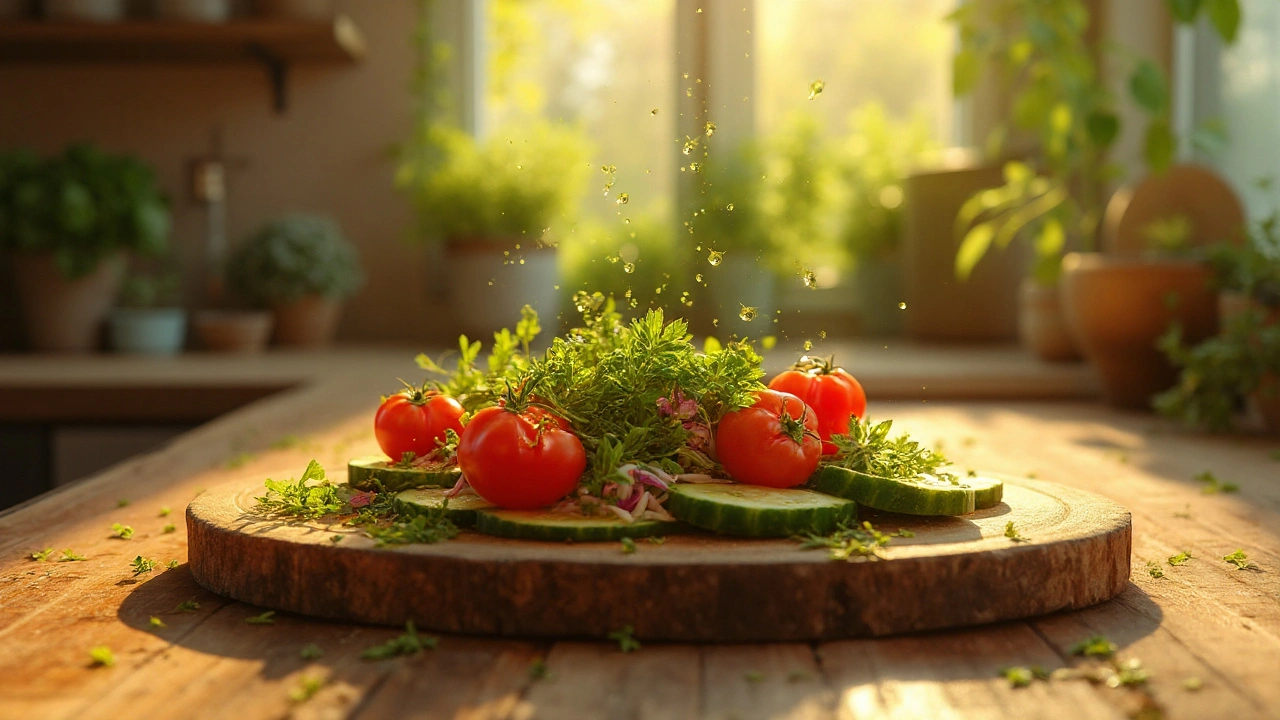Natural Antioxidant Basics: What They Are and Why You Need Them
Ever wonder why fruit‑filled smoothies feel so good? That’s the power of natural antioxidants kicking in. These tiny plant compounds neutralize harmful free radicals, the unstable molecules that age cells and spark inflammation. When free radicals run wild, you can see premature wrinkles, joint aches, or a sluggish immune system. Adding antioxidants to your daily diet helps keep those rogue molecules in check, so you feel sharper and recover faster.
Why Natural Antioxidants Matter for Everyday Health
First off, antioxidants act like a shield for your cells. Studies show people who eat plenty of antioxidant‑rich foods have lower risk of heart disease, certain cancers, and age‑related eye problems. It’s not magic – it’s chemistry. Antioxidants donate an electron to a free radical, stabilizing it without becoming a threat themselves.
Besides disease prevention, antioxidants boost energy levels. When oxidative stress drops, mitochondria – the cell’s power plants – run smoother. That translates to less fatigue after a long day or a hard workout. And for anyone dealing with chronic inflammation, foods high in antioxidants can calm the fire, easing pain and improving mobility.
Top Natural Antioxidant Sources and Easy Ways to Add Them
Here’s a quick cheat sheet of the most potent antioxidant foods and how to pop them into your meals:
- Berries (blueberries, strawberries, raspberries): Toss a handful into yogurt, oatmeal, or just eat them straight.
- Leafy greens (kale, spinach, Swiss chard): Blend into smoothies or sauté with garlic for a fast side dish.
- Nuts & seeds (almonds, walnuts, chia): Sprinkle over salads or mix into homemade granola.
- Dark chocolate (70% cocoa or higher): Enjoy a couple of squares as an afternoon treat.
- Spices (turmeric, cinnamon, oregano): Add a pinch to soups, stews, or even coffee.
- Green tea: Swap one coffee for a cup of brewed green tea in the morning.
Mix and match these foods throughout the day. The goal isn’t to eat a massive bowl of one thing, but to create a colorful plate that covers a range of antioxidants.
If you find it hard to get enough from food alone, consider a supplement. Look for products that list the exact amount of active compounds, like curcumin (from turmeric) or resveratrol (from grapes). Avoid “mega‑dose” pills that promise miracle results – more isn’t always better and can cause side effects.
Safety first: Some antioxidants interact with medications. For example, high doses of vitamin E can affect blood thinners, while grapefruit extracts may interfere with certain heart drugs. If you’re on prescription meds, chat with a pharmacist or doctor before adding a new supplement.
In practice, aim for at least five different antioxidant foods daily. That’s roughly a cup of berries, a handful of nuts, a side of leafy greens, a cup of tea, and a sprinkle of spices. Over a week, this variety gives your body a steady stream of protective compounds without any extra hassle.
Bottom line: Natural antioxidants are simple, cheap, and tasty tools for better health. By loading your plate with colorful produce, choosing smart snacks, and being mindful of supplement choices, you give your body the defense it needs to stay youthful, energetic, and disease‑resistant. Start with one new antioxidant food this week and watch how easy it feels to keep the free radicals at bay."
- September 1 2025
- 17 Comments
- Daryl Gardner
Limonene Supplement Benefits: Boost Health, Weight & Mood Naturally
Discover how limonene, a citrus‑derived terpene, works as a powerful supplement for antioxidant support, weight control, gut health and mood.
- August 31 2025
- 8 Comments
- Daryl Gardner
Summer Savory Supplement: Flavor, Benefits & How to Use It
Discover the bright, herbaceous taste of summer savory supplement and its antioxidant, immune‑boosting and heart‑healthy benefits, plus tips on dosing and comparison with other summer herbs.
- Health & Medicine (141)
- Health & Nutrition (8)
- Caregiving & Dementia (2)
- Health & Wellness (2)
- Environment & Climate (1)
Categories
- February 2026 (11)
- January 2026 (24)
- December 2025 (27)
- November 2025 (22)
- October 2025 (27)
- September 2025 (38)
- August 2025 (5)
- July 2025 (4)
Archives
- side effects
- generic drugs
- medication safety
- medication side effects
- medication adherence
- dosage
- online pharmacy
- gut health
- generic substitution
- safety and side effects
- natural antioxidant
- coping strategies
- hypertension
- drug interactions
- immunosuppressants
- mental health
- MedWatch
- drug safety
- NTI drugs
- narrow therapeutic index

